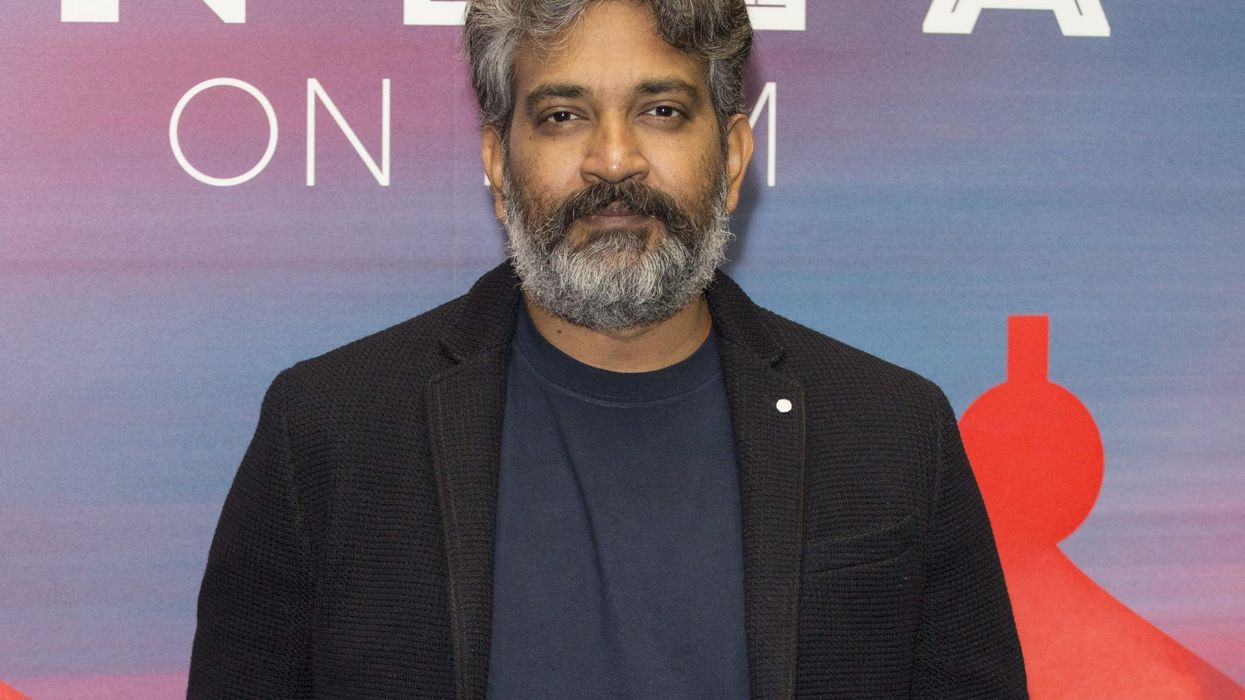Filmmaker S S Rajamouli's "Baahubali" films and "RRR" have been blockbuster hits, but the director, who has often been accused of pandering to the majoritarian view, says he distances himself from "either Hindu or pseudo-liberal propaganda".
In an interview with the US publication The New Yorker, the filmmaker took on questions related to the politics of his film, which is nominated in the best song category at the Oscars 2023 for "Naatu Naatu".
He was asked whether there was any political pressure on him to tell certain kind of stories from the Bharatiya Janata Party (BJP) or the Rashtriya Swayamsevak Sangh (RSS).
"No, never directly, never. No one's ever approached me to make an agenda film, whatever the agenda is. Still, for a long time, less prominent people sometimes found objections to my films. Sometimes Muslims have had objections, sometimes Hindus, sometimes different castes," the director told the publication.
The Telugu filmmaker said his agenda is to provide "entertainment" to the audience coming to theatres, irrespective of what their ideology may be.
"I distance myself from either Hindu or pseudo-liberal propaganda. I know there are audience members from those extreme groups in my audience. I know that, but I'm not catering to them. I'm just catering to the emotional needs of the audience," Rajamouli said.
Released in March 2022, "RRR" is a pre-Independence fictional story focusing on two real-life Indian revolutionaries in the 1920s -- Alluri Sitarama Raju (portrayed by Ram Charan) and Komaram Bheem (played by Jr NTR). It also featured Alia Bhatt and Ajay Devgn in pivotal roles.
Rajamouli also responded to the criticism that his films are nationalistic in nature and distort history.
"First of all, everyone knows the 'Baahubali' movies are fictional, so there is nothing for me to say about whether it is a distortion of history to portray historic characters to suit the present BJP's agenda. As for 'RRR', this is not a documentary. This is not a historical lesson.
"It's a fictional take on characters, which has been done many times in the past. We also just talked about (film) 'Mayabazar'. If 'RRR' is a distortion of history, 'Mayabazar' is a distortion of the historic epic," he added.
The director said those who have accused him of supporting BJP or the party's agenda in his cinema forget that a BJP leader had threatened him for showing Jr NTR's Bheem in a skullcap.
"So people can decide for themselves whether I'm a BJP person or not... I hate extremism, whether it is the BJP, Muslim League, or whatever. I hate extreme people in any section of society. That is the simplest explanation that I can give," he added.
On the allegations that he deliberately omitted Mahatma Gandhi's picture in "Etthara Jenda", the final song of the movie, Rajamouli said he was tired of answering that question.
"There are numerous freedom fighters who laid down their lives to attain liberty for our country. I have heard many stories about these freedom fighters from childhood onward. Whichever stories touched me, made me cry, or made my heart swell with pride, those are the historic figures that I chose for that scene," he said, adding that there was room for only eight photos in that song.
"Still, I respect all of the revolutionaries that I chose, and, if I didn't put Gandhiji's portrait there, it doesn't mean I disrespect him. I have huge respect for Gandhiji, no doubt about that," he said.
On a question about whether there was a rise in anti-Muslim sentiment in India, the director said he does not think in those terms.
"I don't know. I don't think in those terms. I always feel like films reflect the society that created them, whatever that society's feelings are. Films reflect the pace of society because filmmakers have to cater to audiences. They'll see what audiences like, what their present mood is, and make films for that.
"If there is a rise in that kind of sentiment in society, those kinds of films will come out. But I always stay away from that. I go a completely different route," he added.
(PTI)




